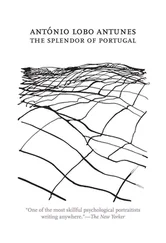Anna Godbersen
Splendor
A Luxe Novel
FIFTY YEARS AGO, EVERY AMERICAN GIRL WANTED to be a European princess. One could detect it in her gowns and gestures, for they all tried to dress as European ladies did and to imitate the manners of Parisian salons. But now they come from the old world to see how we behave and decorate ourselves here in the United States. They stand on the decks of steamers, gloved hands gripping the guardrail as they catch their first glimpse of Manhattan, that island of towering buildings and smothering secrets, brimming with its millions of lives celebrated or forgotten in almost equal measure. What a narrow strip of land, those sea voyagers inevitably remark in surprise as they begin to take in the new world, for so very much to happen upon.
Of course, roughly as many ships go out of the harbor as come into it. Even those whose names are regularly cast in the smudgy glory of gossip columns, and followed in every detail by an eager public, must sometimes leave. How many top-drawer souls were entrusted to the hands of the Cunard Company, whose twelve o’clock steamer was already drawing resolutely away from land, en route from New York to France? The crowd on the worn wood planks of the dock was growing smaller, as was the city that cropped up behind it. A gentleman or lady leaning against the rail could not even make out the handkerchiefs waving at them anymore, although they knew that fine examples of embroidery were still being held aloft in the thick summer air. Did they regard their hometown with love or nostalgia or resentment? Were they glad to see it slip by, block by block, or did they already miss its drawing rooms and shady clubs, the verdant park at its center, and the blocks of mansions lining its borders?
There , those fine New Yorkers looking back at their city might think, if I followed that street I would arrive at Mamie Fish’s house. Or I could take that one to where the William Schoonmakers live, or to the Buck mansion, or to any number of Astor holdings . They might reflect, thinking of those landmarks, that it has always been a world that holds its children tight to its breast, or else sends them away to wander like exiles. What slights and embarrassments, what suffocating marriages and unforgivable deeds, what grand social missteps might the voyagers under that cloudless July sky be trying to escape?
For any bright sets of eyes gazing a last time at the island of their birth, there will be a certain glow of longing for what was left behind. But the anguish of leaving will dim with every passing second as the excitement of what they are yet to see grows. Especially for a girl who, say, has only recently come to understand what hearts are capable of, or where love and a healthy sense of curiosity can take her; or a fellow who has just experienced the thrill of truly cutting ties for the first time, and of stepping out as his own man. After all, it takes only a few seasons to learn how everything changes, and how quickly; to realize that the glorious and grotesque lives lived at the currently fashionable addresses will soon seem quaint and outdated. New York will always be there, but it grows stranger every day, and staying put will not make it stay the same.
And in the end it doesn’t matter, because these eyes had to go, and the distance from shore has rapidly become too great to swim. There is no going back now.
With the younger Miss Holland, Diana, away in Paris for a finishing season, it is a most lonely social era, and we have all had to content ourselves with lesser beauties. There are those of us who remember those chocolate eyes and glossy curls and sulk in the corners at gatherings awaiting her return.
— FROM THE “GAMESOME GALLANT” COLUMN IN THE
NEW YORK IMPERIAL, FRIDAY, JULY 6, 1900
IN THE MORNINGS, SHE LIKED TO WALK ALONG THE seawall. She went by herself and usually only passed one or two gentlemen, canes ticking against the stone, for the locals preferred to stroll later in the day, after siesta. Lately the weather had grown extreme, and there were occasions when the ocean would sweep over her path; at first this frightened her, but by a humid Friday in early July, she had come to view it as a kind of baptism. The force of the sea — as she had written in her notebook the night before, just before falling asleep — stirred her, and soothed her, and made her feel reborn.
Once she had crossed the Paseo del Prado, she turned and headed into the old town, with its shadowy arcades and glimpses of tiled and verdant patios just beyond the crooked streets. There were more people there, lingering in arched doorways or around tables in the squares. She wore a wide, drooping straw hat, and her short brown curls were pinned up at the nape to disguise the peculiar length. Not that it mattered — she was a foreigner, and all of her peculiarities were obscured by that one vast difference. No one recognized her here; it did not matter to any of the Habaneros passing in the street that she was Diana Holland.
That was in fact her name, and in other parts of the world it carried certain implications. For instance, that she had been taught from a young age never to show the naked skin of her hands outside of her family home, nor to walk on the streets of her own city unchaperoned. And although she had routinely flaunted these restrictions, she had never known what it was to be so thoroughly free of the rules of her hometown until she had arrived in Cuba. In her light-colored, loose-fitting dress, on the streets of a very foreign capital, she was both quite noticeable and, in a manner, invisible. She was anonymous, and, like the sea, this state of being made her feel all new and clear-eyed.
The ocean was behind her now, as well as the slate gray clouds that were massing over the bay and beginning to crowd out the blue sky. The green of the palm trees appeared extreme in contrast. The air was thick and moody with the possibility of rain, and the weather looked bad, but for her there was something satisfying in such a landscape. The shades of dark, the looming quality, all seemed to her a kind of expression of what was in her soul. Sooner or later the downpour would begin, first in big drops, then in heavy sheets that would soak the striped awnings and flood the gutters. It was not long ago — a matter of weeks, although sometimes it felt like forever — that she had arrived in Havana, but she was a quick study of atmospheric disturbances. This one had the color of suffering, and she would know.
She was alone and thousands of miles from home, but of course it wasn’t all suffering. If Diana had been pressed, she would have had to admit that there was only one thing she really wanted for. Even the loss of her curly mane of hair had not been truly bitter. She had cut it because of Henry Schoonmaker — she’d foolishly tried to enlist in the army to follow him, even though he was her sister Elizabeth’s former fiancé, and currently married to a rather terrifying girl, who as a maiden had gone by the name Penelope Hayes. A thing Diana wouldn’t do in pursuit of Henry had yet to present itself. Before this she had been a barmaid on a luxury liner, and before that she had hustled her way to Chicago on trains. That was when she still believed that Henry was in a regiment headed for the Pacific by way of San Francisco.
She had gotten used to the short hair, which had been a self-inflicted wound in the first place, and anyway there was nothing chopped tresses could do to contradict the rosy femininity of Diana’s petite body. In the previous months she had found herself capable in ways she could not possibly have imagined back in the cozy rooms of the townhouses of old New York. She had never, during her adventures, gone without food or slept out of doors. But, oh, the lack of Henry — how that wrung her delicate heart.
Читать дальше












